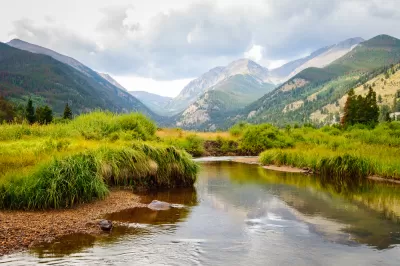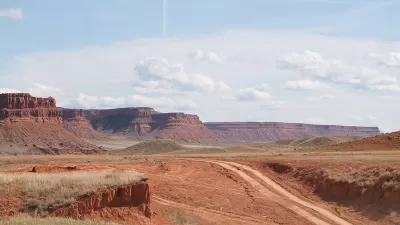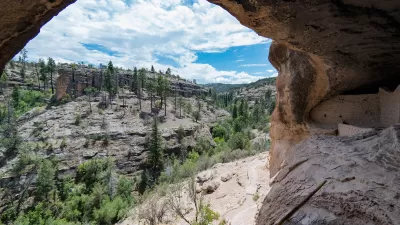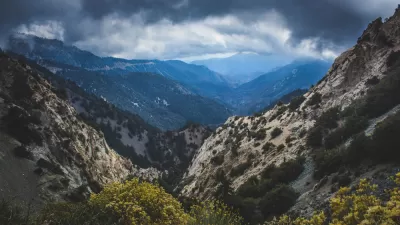Wealthy buyers are snapping up large parcels of land and imposing new rules. Residents say restricting access is not fair and the actions are affecting communities and their way of life.

Julie Turkewitz reports on the wealthy individuals buying up large amounts of land throughout the country, particularly in Western states:
Today, just 100 families own about 42 million acres across the country, a 65,000-square-mile expanse, according to the Land Report, a magazine that tracks large purchases. Researchers at the magazine have found that the amount of land owned by those 100 families has jumped 50 percent since 2007.
While some of these landowners have worked to restore and conserve wilderness areas, others have put in place restrictions that have angered local residents. For example, billionaires Dan and Farris Wilkes own 700,000 acres, including land in Idaho. Almost 300 miles of the Idaho property borders public lands, and they put up gates and signs prohibiting trespassing. "They also revoked road-use contracts that propped up the region’s multimillion-dollar snowmobile industry, shut down hunting on their land and told timber companies to pull crews from the area," writes Turkewitz.
Locals say these new landowners are taking away access to areas that they have used for generations, notes Turkewitz. "The arrival of this new class of landholders comes as the region is experiencing the fastest population boom in the country, which is driving up housing prices and the cost of living and leaving many residents fearful of losing their culture and economic stability."
FULL STORY: Who Gets to Own the West?

Alabama: Trump Terminates Settlements for Black Communities Harmed By Raw Sewage
Trump deemed the landmark civil rights agreement “illegal DEI and environmental justice policy.”

Study: Maui’s Plan to Convert Vacation Rentals to Long-Term Housing Could Cause Nearly $1 Billion Economic Loss
The plan would reduce visitor accommodation by 25% resulting in 1,900 jobs lost.

Planetizen Federal Action Tracker
A weekly monitor of how Trump’s orders and actions are impacting planners and planning in America.

Waymo Gets Permission to Map SF’s Market Street
If allowed to operate on the traffic-restricted street, Waymo’s autonomous taxis would have a leg up over ride-hailing competitors — and counter the city’s efforts to grow bike and pedestrian on the thoroughfare.

Parklet Symposium Highlights the Success of Shared Spaces
Parklets got a boost during the Covid-19 pandemic, when the concept was translated to outdoor dining programs that offered restaurants a lifeline during the shutdown.

Federal Homelessness Agency Places Entire Staff on Leave
The U.S. Interagency Council on Homelessness is the only federal agency dedicated to preventing and ending homelessness.
Urban Design for Planners 1: Software Tools
This six-course series explores essential urban design concepts using open source software and equips planners with the tools they need to participate fully in the urban design process.
Planning for Universal Design
Learn the tools for implementing Universal Design in planning regulations.
Caltrans
Smith Gee Studio
Institute for Housing and Urban Development Studies (IHS)
City of Grandview
Harvard GSD Executive Education
Toledo-Lucas County Plan Commissions
Salt Lake City
NYU Wagner Graduate School of Public Service





























